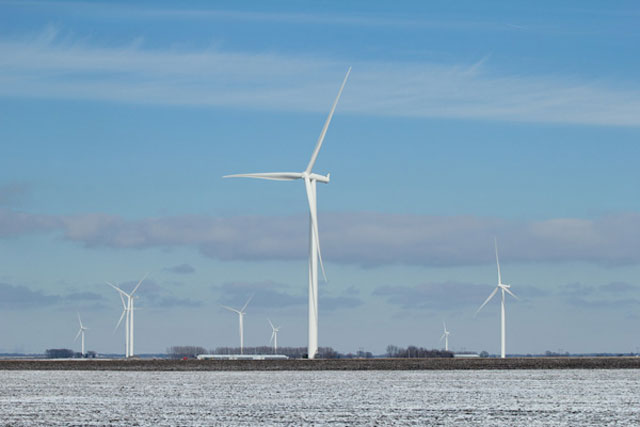(Atlantic, Iowa) – The Cass County Master Gardeners have a busy month planned in May! On Saturday May 11, the group will host their annual Spring Plant Sale on the Cass County Fairgrounds. A few weeks later, on Wednesday May 22, the annual Master Gardener Bus Trip will leave from the fairgrounds for a day of education, garden exploration and plant nursery shopping. Any interested member of the public is invited to both events to help kick off the start of the gardening season!
The Plant Sale begins at 8 AM on May 11 , and will be held in the front parking lot of the Cass County Community Center on the fairgrounds at 805 W 10th Street in Atlantic. The event promises to have a wide variety of perennials available for gardeners to add to their landscape this year, as well as lawn tools, décor, and gardening books. Interested gardeners are encouraged to arrive early for best selection. All items will be sold for a free will offering, with all proceeds used to support Master Gardener community grants, scholarships, and other projects around the county. A resource table with information on gardening topics and local projects will also be available.
For the annual spring sale, Cass County Master Gardeners offer a variety of perennial and annual plants from their own gardens, as well as plants dug from gardens in the local area. The Atlantic FFA chapter and horticulture students will again be set up at the plant sale, offering food plants and flowering annuals for sale. All FFA plants will be sold at a separate booth and individually priced. Information will also be available on student plant sales from other Cass County schools. Community members are welcome to donate plants to this event, and members may even help you dig! If you are dividing perennials in your yard this spring and have extra plants to donate, please call in advance and make arrangements to drop off donated plants before the date of the plant sale.
The annual Bus Trip on May 22 features a full day of garden visits, educational activities, and a chance to explore and shop specialty plant nurseries. The trip heads north this year, and includes stops near Wall Lake, Odebolt, Auburn and Lake View. The bus departs the fairgrounds in Atlantic at 8 AM and returns around 6:30 PM. The trip is coordinated by the Cass County Master Gardeners but is open to everyone. Registrations are taken on a first-come basis, so register soon and be sure to reserve your spot on the bus! The cost is $65 for the day, which includes transportation, a meal and snacks. Registration forms are available at the Cass County Extension office and can also be found on the Cass County Extension website at www.exension.iastate.edu/cass. A full itinerary is on each registration form.
The goal of the Master Gardener program is to provide community service and education in horticulture. The Cass County Master Gardeners utilize funds raised from their annual spring and fall plant sales for local community projects, include maintaining community garden spaces around the county, providing education programs to youth and adults, and providing financial support to local horticulture projects. Other upcoming events from the Master Gardeners include a local garden walk at the end of June and the fall plant sale on September 14. Master Gardeners will also be providing education to community members at events throughout the summer and offering the opportunity to train as a new Master Gardener beginning later this summer.
For more information about the plant sale, bus trip, and other Master Gardener activities in Cass County, please call the Cass County Extension Office at 712-243-1132, or email Cass County Extension Director and Master Gardener Coordinator Kate Olson at keolson@iastate.edu. In addition, you are invited to follow the Cass County Master Gardeners at their Facebook page at www.facebook.com/CassCoMG or visit www.extension.iastate.edu/cass/master-gardener-program to keep up with local events and tips for gardening and learn more about becoming a Master Gardener in Iowa!









